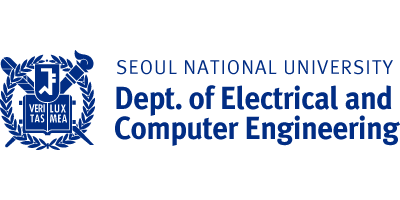Professor Hyuk-Jae Lee says, “The lukewarm semiconductor policies has to be modified” (The Munhwa Il-bo, 2023.01.11)

Hyuk-Jae Lee, professor at the SNU Dept. of Electrical and Computer Engineering
Last November, South Korea's current account balance turned deficit after three months. This year, concerns are growing about a 'twin deficit' in both fiscal and account balances. This is primarily attributed to a decline in exports, with decline in semiconductor exports in particular accounting for a significant portion. Notably, the fourth-quarter performance of Samsung Electronics plummeted by about 70% to 4.3 trillion won, a stark contrast to the previous year's 13.87 trillion won. The earnings shock is evident, and the outlook for SK Hynix's performance is also pessimistic.
The main factor behind this decline in semiconductor performance is the sharp decrease in semiconductor demand due to the global economic downturn, and it is expected that this trend will continue for a while. During semiconductor downturns, there is often a reduction in investment to production facilities and research and development (R&D), leading to a decline in the competitiveness of the semiconductor industry. The fall of Japanese semiconductor companies, which were the leading companies in the 1980s, was also attributed to such factors. However, it is not an easy decision to continue investing to semiconductor industry during a semiconductor downturn, so proactive policies are necessary to support this.
Developed countries are currently competitively supporting the semiconductor industry. The United States is providing a support package of $52 billion (approximately 65 trillion won) for its domestic semiconductor development and has enacted a bill that offers a 25% tax deduction to semiconductor facility investment companies. The EU, Japan, China, and Taiwan are also providing comprehensive support to attract semiconductor production facilities to their respective countries. On the other hand, in Korea, there is a consensus on actively supporting the semiconductor industry in principle, but there are conflicting opinions when it comes to the specifics of formulating semiconductor support legislation. Therefore, even though solutions that could greatly contribute to the development of the semiconductor industry are available, there are often instances where conflicting opinions lead to the exclusion of certain approaches or insufficient compromises.
At the end of last year, amendments to the National Strategic Advanced Industries Act and the Special Taxation Law for supporting key strategic industries were passed in the National Assembly. Even in these bills, there have been compromises made on certain important aspects, leading to insufficiencies. For instance, a measure to lower the tax deduction rate for semiconductor industry technology investments was included, which was set at a mere 8%, which is much smaller compared to that of the US, and significantly falls short compared to the proposed 20% put forward by Representative Yang Hyang-ja, the Chairperson of the Semiconductor Special Committee within the National Assembly. Additionally, the proposal to expand semiconductor departments in the capital region to foster semiconductor talents was excluded. In the semiconductor industry, fostering talents is the most urgent issue. Despite prioritizing the expansion of semiconductor departments in the capital region, it was overshadowed by arguments of favoritism and neglect of local universities.
The acts include shortening the permit period for semiconductor factories from the existing 30 days to 15 days, a necessary measure to aid swift factory construction, but this alone is not sufficient. This can be seen from the progress of SK hynix's semiconductor cluster project in Yongin City, which was pursued with a total investment of 120 trillion won. Although the plan was announced in February 2019, due to issues like environmental impact assessment, water and power facilities, construction has not even begun for four years. It is evident that more government support measures are needed, not just expedited factory permits.
In the current global semiconductor war, securing victory solely through the measures included in the current semiconductor special law is not possible. Even if some sacrifices in other fields were to be made, a more proactive support strategy could help mitigate the current export decline and accelerate the overcoming of the semiconductor downturn.
Source: https://ee.snu.ac.kr/community/news?bm=v&bbsidx=53553&page=3
Translated by: Do-Hyung Kim, English Editor of the Department of Electrical and Computer Engineering, kimdohyung@snu.ac.kr


